The Intro
My understanding of Queer culture and PRIDE came gradually as I grew up in the Midwest. I was not heavily exposed to LGBTQ culture as a kid on the southeast side of Cleveland. The diversity I experienced most was Black culture in my neighborhood and Indian culture due to my best friend. I came up well versed in Hip Hop and Bollywood movies, but Queerness was a taboo that was being cast in dark shadows by Reagan’s AIDS rhetoric, Christian evangelical propaganda, and the typical toxic masculinity that was laced with homophobia. There weren’t a lot of gay people out and about in my neighborhood. No kids coming out despite bullies calling every guy they didn’t like a homo. I was a shy kid but observant, so I did notice things as I came up in the mid-late 80s. My aunt had a gay friend, I just remember meeting him a few times and my parents mentioning it. I saw AIDS reports on TV and felt compassion when I saw the devastation of the disease hitting the community—but that was far from me. I thought so anyway. I wasn’t a sheltered kid really, despite my mom’s faith, I chose to explore the things that interested me even with the looming fear of eternal damnation. Still LGBTQ culture was not really part of the blue collar area that I was being forced to find my way in.
I’ll Tumble For Ya
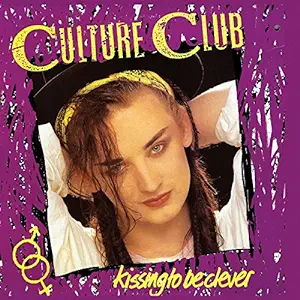
The first real Queer awakening for me was when I would watch MTV as a kid. Boy George, who I absolutely adored, gave me a hint that there was a culture beyond the typical straight one I knew. “Karma Chameleon” was the first song I ever heard that made sense to me as a kid who was outwardly one way and inward another. I wasn’t some deep thinker or scholar of gender at that time, but it piqued an interest in the world of art, music and identity. My babysitter was a big Adam Ant fan, and while his get up was some futuristic pirate look, I was so drawn to the feminine aspects of that subculture of new wave, synth-pop. There were the hair metal bands that literally cross dressed as part of the glam rock esthetic, which was just a Hollywood facsimile of Bowie and Bolan’s ambiguously fabulous cosmic look. Those bands however were playing music I didn’t enjoy outside of a few radio hits, and the overtly sexual hyper-masculinity was even too much for my pre-teen self—I wasn’t even really aware the reality of misogyny. Queen was still a top draw and Freddie Mercury was the center of attention when it came to the issue of the gay fear gripping the media. His flamboyant look and epic vocals made him a target and a hero. I remember the Live Aid performance and just being enamored with his fashion—Bowie and Bolan’s mastery came a bit later in my musical discovery. Mercury certainly had a grip on the Queer culture crossing over into mainstream, Queen was one of the biggest bands on earth. For me though they just weren’t my style.
Time After Time
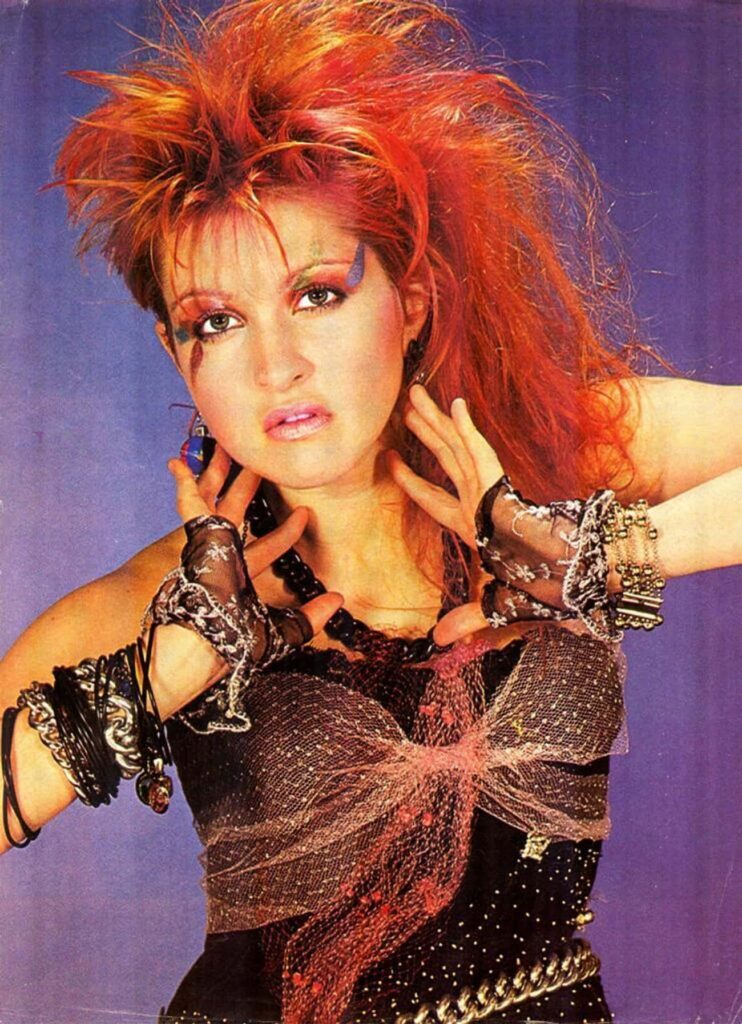
I would move towards new wave or punk styles, finding the upbeat, catchy and at times aggressiveness of it more invigorating. I fell in love with Cyndi Lauper as most were lusting after Madonna—though I did love her too. Cyndi gave me some weird vibe that I wasn’t even sure about as a kid, just something different that spoke to me. It did help that she was part of The Goonies soundtrack—a movie I saw about 5 times when it came out. I also loved “Girls Just Wanna Have Fun’ which was ironically one of my mom’s favorite songs too. I loved the video, Captain Lou Albano as her father, which brought my childhood wrestling fandom into a new place of musical discovery. I ate up everything Cyndi Lauper, which led to my favorite song “Time After Time’ never leaving my rotation but also hearing “She Bop” and giggling when I learned it was about masturbation. Something I was also discovering in my preteens—which I often feared would send me to hell. Cyndi wasn’t making me Queer but I was becoming aware of my difference from other boys, despite my love for sports and getting into typical boyhood nonsense.
Around early teens I was already labeled a troubled kid. I was from a broken home, a poor one too. I lived in the undesirable part of my Cleveland adjacent suburb where many poor families had migrated after Cleveland’s 1980’s decline began to chase anyone that could get out away from it. My neighborhood was becoming very mixed, which made all who lived there an outcast. I was a kid wearing thrifted clothes, coming into my own style of dress and discovering more music that bucked the system. While Hip Hop, Hardcore, and Punk dominated my newfound identity, it was so masculine and aggressive. I enjoyed the release of a punk or hardcore record. Live shows gave me a place to let out the teen angst and anger of my adolescence, but I still loved the dance heavy pop. I listened to WHAM! And George Michael secretly because it was a instant alarm to bullies that would pummel you for being gay. I also was discovering Depeche Mode, The Cure, and The Smith’s. I was seeing the tenderness of songwriting that could co-exist within the realm of cool underground music. I discovered Lisa Stansfield, as her videos were being played in heavy rotation, falling in love with her music but also wanting to know where I could discover this kind of scene. A club scene that seemed full of life and love.
By my high school days, I was becoming very diverse musically. Listening to the grungy bands, underground indie and post-hardcore like Fugazi, and of course Hip Hop. I also was finding out about House music, Trip-Hop, and the disco influenced stylings of The Brand New Heavies who made me feel a certain type of way that other music didn’t. I also was enamored with Stansfield and The Pet Shop Boys who didn’t hide their Queerness. I was learning about art and poetry too, finding refuge in the writings of Allan Ginsberg and Frank O’Hara who were openly gay and brilliant to me. Keith Haring had reached my radar, and his Queerness was evident—as was his AIDS activism. This led me to discover ACT UP and other AIDS activist groups.
Last Night a DJ Saved My Life
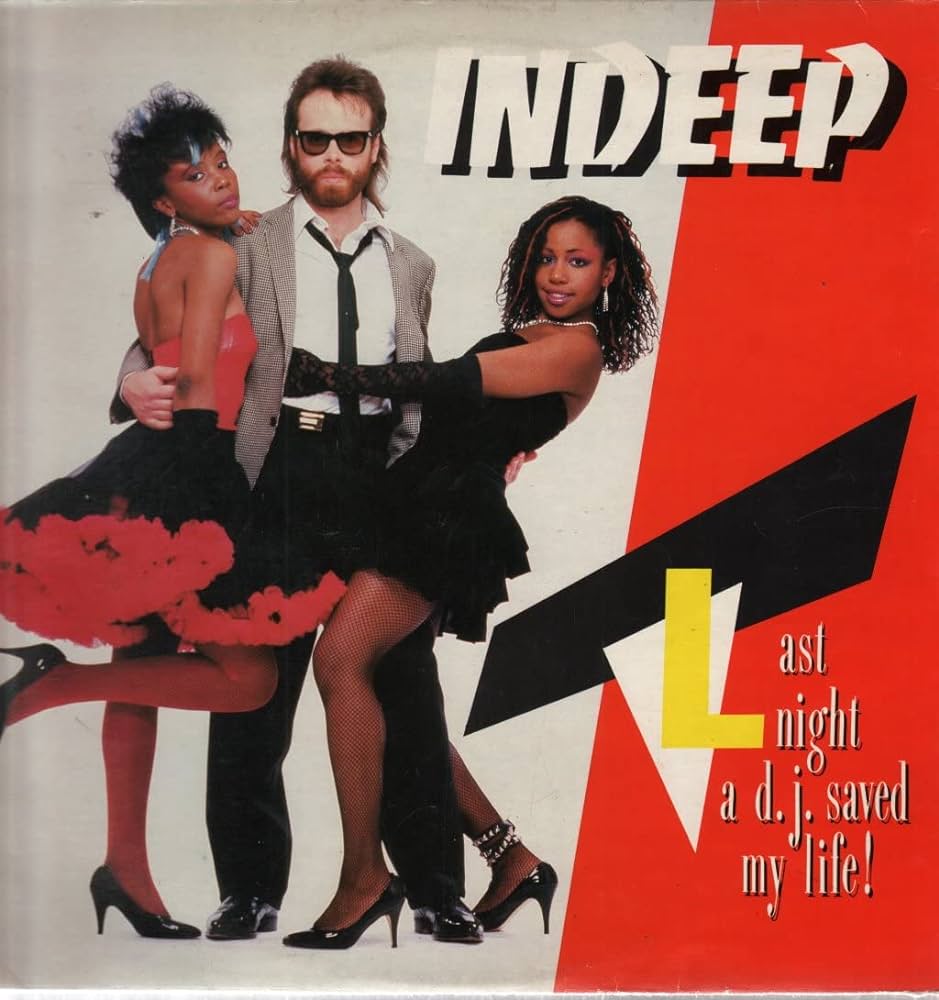
Still Cleveland seemed far away from NYC or LA or London. I knew some gay people by now and I knew I wasn’t gay, but I didn’t feel straight. I found my nights filled with a lot of headphone sessions where I skipped the Nirvana records and listened to more “Gay” music. The group In Too Deep’s song Last Night A DJ Saved My Life was discovered on a random record store trip, that song really set me on a path of discovery that would find myself immersed in the House music world. My co-worker at my first record shop job, Darrell was a DJ. He started taking me into his world of love, dancing, and good vibes. There was of course the darker side I fell into, but the music was the life. It was like the energy of punk and hardcore that I loved but the community was more diverse, more welcoming and more Queer.
By college, the first time around, I felt conflicted. Having become a Christian but a skeptical one, I wanted to feel something that I though god would provide. I had trouble fitting into Christian spaces because of my addictions, my language, and my lack of evangelical culture. I also disagreed with the purity messaging, the repression and the homophobia of it all. I was kicked out of the Campus Crusade group at the University of Toledo for being a bad influence because my artwork was dark and my haor was blue. I found myself wandering the student union and wandered into the Gay and Lesbian student union. They welcomed me with open arms. I began to meet people, changed to an acting major, and made friends with LBGTQ folks. I felt I found my tribe, but my Christianity that was warped fucked with my joy of finding a home. I dated a bi-sexual girl with a lot of sexual energy who taught me a lot about what I liked and didn’t. I kissed a man on stage and at a party, I wasn’t repulsed as others had said I would be coming from a straight man’s world. I knew I wanted to be part of the freedom of a Queer existence, but I was afraid. I was also struggling with undiagnosed mental illness, trauma, addiction, and faith. I couldn’t take on another big one—my identity.
What Would Jesus Do?
So, I became an activist, politically left and very LGBTQ friendly. I transferred to a Christian college where the issues of sin and Queerness collided often, but I found a community there of leftist thinkers and Queer folks that were dealing with the same identity crisis I was. I dove into politics and gender studies. I made art, music, and created poetry that veiled my struggles but still allowed me to stay in the fight. I read a lot, challenged Christian homophobia, and got into a lot of hot water—long before I ever even became an affirming minister years later. Still, I was afraid, hiding my identity under tattoos, hardcore tough guy image, and a secrecy that would last until I was 43. I just wasn’t that strong despite my passion to make the world better through my often naive idealism and righteous anger.
The music and art were my main place to be Queer even if I wasn’t out with it. I didn’t know if I was gay, bi, or just rebellious. I felt the pressure of Christian propaganda, purity crap, and the overall taboo to be hard. I knew more and more LBGTQ people, but I was not ready. I wasn’t as brave in my queerness as I was about other things. I got married, did ministry, put on concerts and became a writer. My wife and I were very gay affirming lefty Christians, we opened our ministry to gay people without judgement. We fought for gay rights and preached acceptance and universalism. I was a good pastor, I think. The problem was I wasn’t myself nor did I fully believe in the god I wanted to feel was real. Eventually it all crashed. I got sober after 27 years of addiction, I got divorced, I lost my faith, and a few years into my forties I came out as a Queer person. Slowly I told people, some gave me shit or didn’t believe me. I had to explain I was not gay, I might be bi, but after going back to college I discovered the Gen Z Queer community that helped me realize I didn’t need a box. I was just not straight. Maybe I’m pansexual or bi or maybe I am not anything I need to define. I just know I am better now and feel so relieved. I am attracted to people who are full of kindness, beauty, love, and empathy—for now that is enough.
We Can Be Heroes
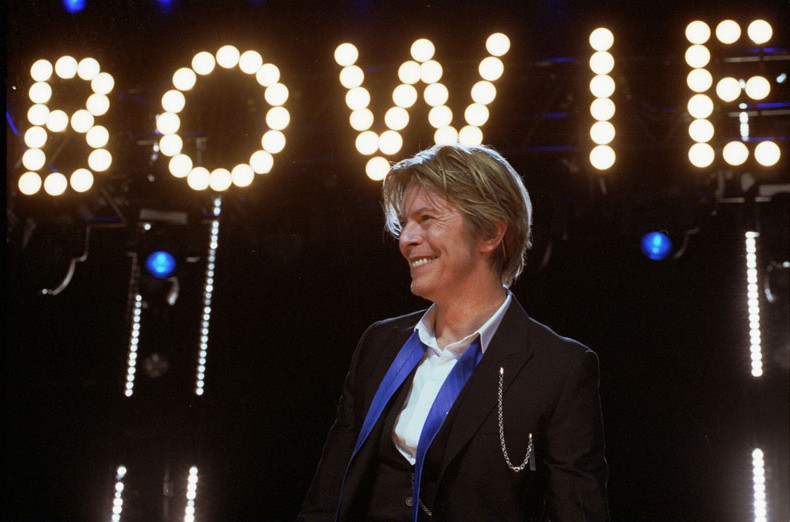
The one constant friend and supporter I’ve had since my youth—when I never felt I belonged anywhere—was music. I am forever indebted to Cyndi Lauper, George Michael, Pet Shop Boys, Lisa Stansfield, Massive Attack, Sade, Soul II Soul and House Music. So many icons like Bowie, Bolan, Mercury, and even Mick Jagger for showing me that men could be different or not men at all. Iggy Pop, Patti Smith, and Lou Reed have become artists that shaped me into a person that understands the beauty of androgyny and not adhering to strict gender roles, can go a long way in finding yourself. My favorite musicians sculpted my feminism and my courage to not just follow the crowd as a typical man—especially when I didn’t feel I was. Kathleen Hanna, Julianna Hatfield, Tanya Donnelly, PJ Harvey, and Catpower let me feel in touch with a side of me that wasn’t accepted in the boy’s world. I wasn’t drawn to Queen or Elton John, who were the Queer icons of the mainstream, but I found artists like Bob Mould, who was a pretty average guy writing great songs, a punk rock legend and an openly gay man. I realized being Queer was about me not what others defined and while art and fashion tend to wrap all things into a package—people aren’t simply this or that.
I am still learning a lot of who I am. Who I am attracted too. Who I want to become as I navigate my 12th year of sobriety and my 5th year out. I’m also only 12 years outside of Christianity, It’s all new. It is lonely a lot when I feel I still don’t fit into the right space or get judged for being someone I am not because I present as a tattooed straight man to many Queer folks. I struggle with people who need me to tell them what my sexuality is. The fact I prefer women to men—but I am attracted to both. The sorting out of years of addiction, trauma, and programming in therapy leaves me exhausted too. The only saving grace, honestly most days—is music. I am glad I heard Adam Ant at 8 years old, saw Boy George on TV and found Cyndi Lauper to be my first crush. These are core memories and things that would help me not leave this world when I felt no one understood my inner struggle and outward conflicts. The little artsy kid inside me that is listening to Morrissey croon “Heaven Known I’m Miserable Now” is protected always by the big, tattooed man who carries scars from a turbulent life. I have learned We Can Be Heroes, just For One Day—even if just to ourselves.
Support Gen X Watch!
We rely on readers like you to continue our work. A few moments and you can make a difference:
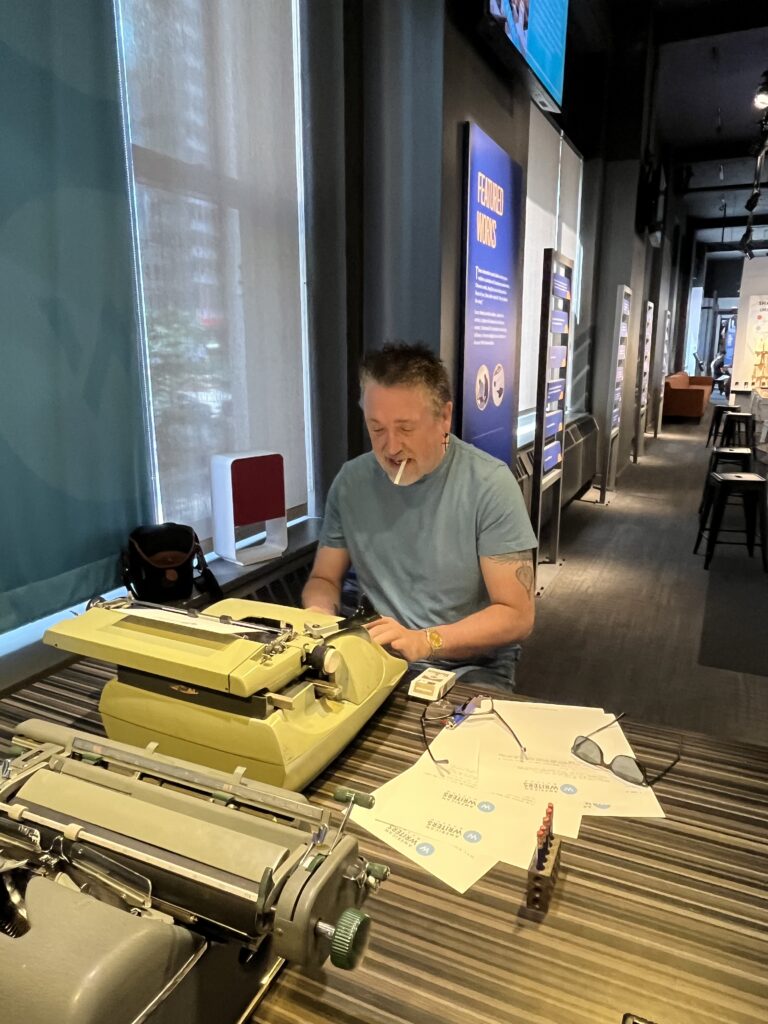
1. Share this story with a friend and leave a comment.

2. Tip me! I need your support! Jeremy Ritch gets all tips from this article!
3. Become a Members Only Patreon! In the Patreon I will have unfiltered rants, exclusive content, free PDF copies of the upcoming quarterly magazine, and more.
4. Go to our store and buy the print magazine! It is art, news, and nostalgia that matters! Jeremy’s debut article is only available in the magazine.
Thank you for your support and taking the time to read this.
Stay Totally Awesome! Stay true to you.
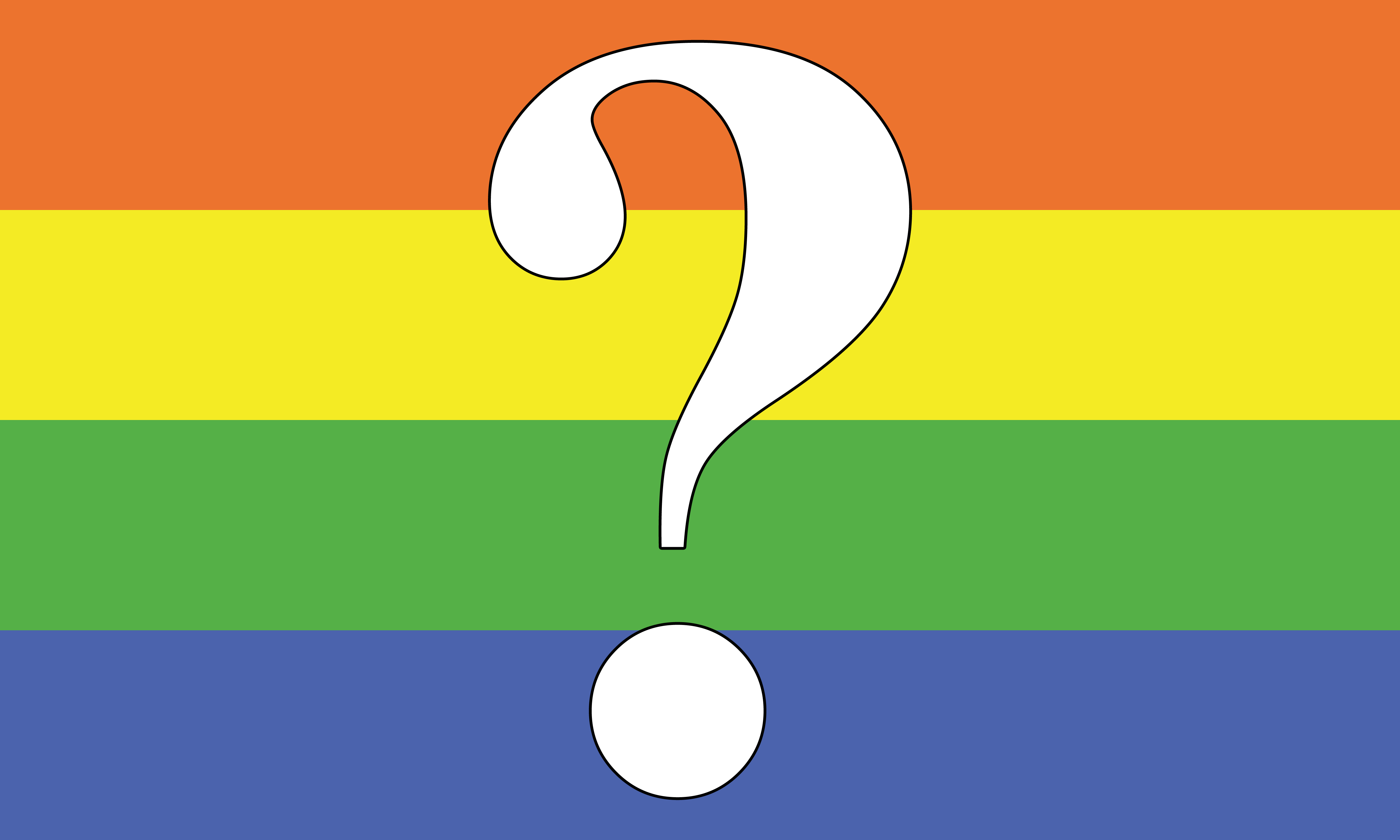
Leave a Reply